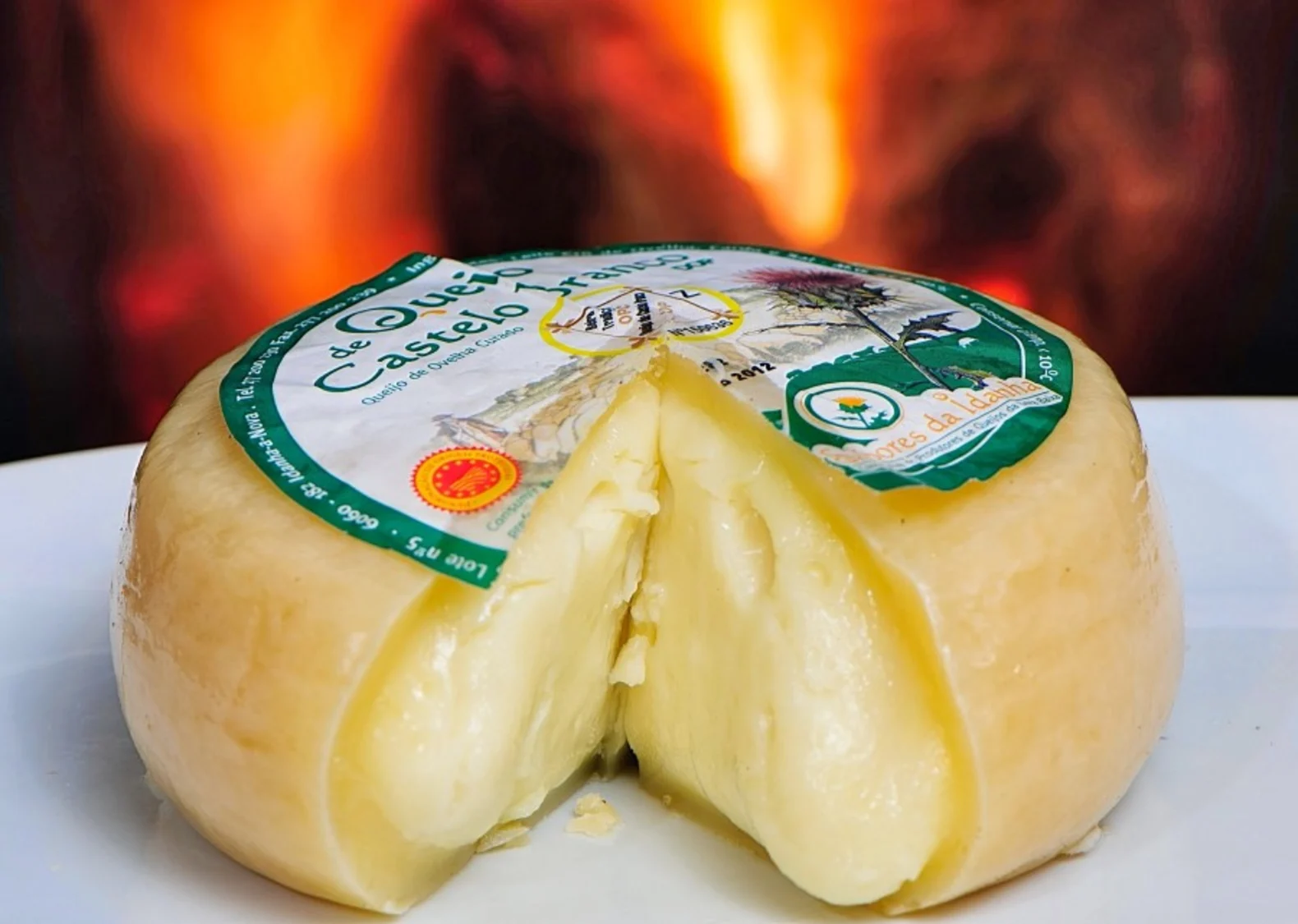
Queijo da Serra
Rich, creamy sheep's milk cheese from the Serra da Estrela mountains.
Ingredients
- •Raw sheep's milk
- •Thistle rennet
- •Salt
Instructions
Curdle
Add thistle rennet to warm milk to form curds
Drain
Drain whey and place curds in molds
Age
Age cheese for at least 45 days
Queijo da Serra, also known as Serra da Estrela cheese, is Portugal's most famous cheese and often called the "king of Portuguese cheeses." This rich, creamy delicacy is made exclusively from the milk of Bordaleira Serra da Estrela and Churra Mondegueira sheep breeds in the mountainous Serra da Estrela region.
The history of this cheese dates back centuries, with traditional production methods passed down through generations of Portuguese shepherds and cheesemakers. Its unique characteristic comes from using cardoon thistle flower as a natural rennet to coagulate the milk, a technique that has remained unchanged for hundreds of years.
The cheese-making process begins with raw sheep's milk, which is gently warmed before adding the thistle rennet. After the curds form, they are carefully drained and placed in traditional wooden molds that give the cheese its distinctive round shape. The aging process takes a minimum of 45 days, during which the cheese develops its complex flavors and characteristic buttery texture.
When young, Queijo da Serra has a soft, almost liquid center that can be scooped out with a spoon, earning it the nickname "butter cheese." As it ages, it becomes firmer but maintains its creamy, rich character. The cheese's flavor profile is complex - slightly salty with subtle bitter notes from the thistle rennet, and a lingering sweet, nutty finish.
In Portugal, this prized cheese is often served as part of a cheese board or as a starter, accompanied by crusty bread and a glass of full-bodied red wine. Some locals enjoy it for breakfast, spread on warm bread, while others save it for special occasions. During winter months, it's traditional to serve the cheese by cutting off the top and scooping out the creamy interior.
While Queijo da Serra is a nutritious source of protein and calcium, it's also quite rich in fat and calories. Those watching their cholesterol intake should enjoy it in moderation. Being made from raw milk, pregnant women and those with compromised immune systems should consult their healthcare provider before consuming. The cheese is naturally gluten-free but may not be suitable for those with severe lactose intolerance.
